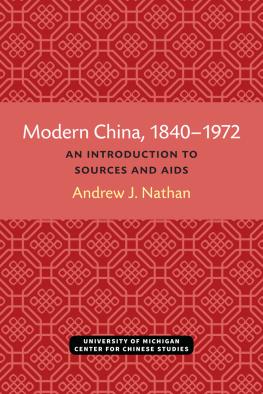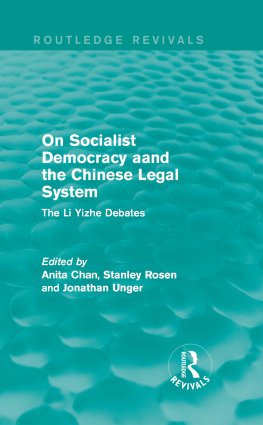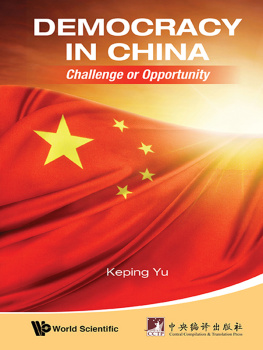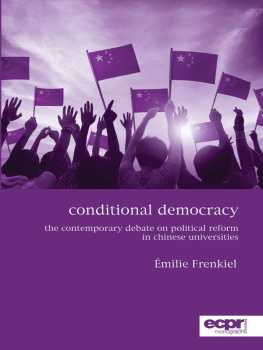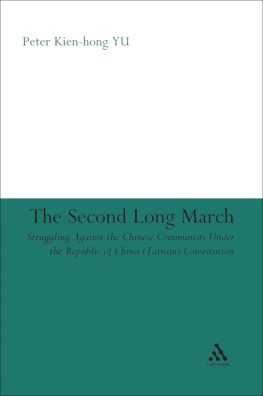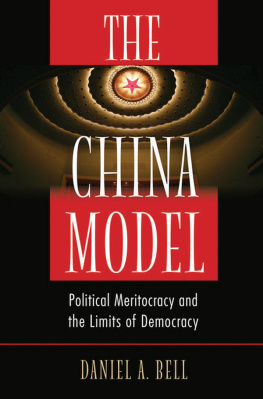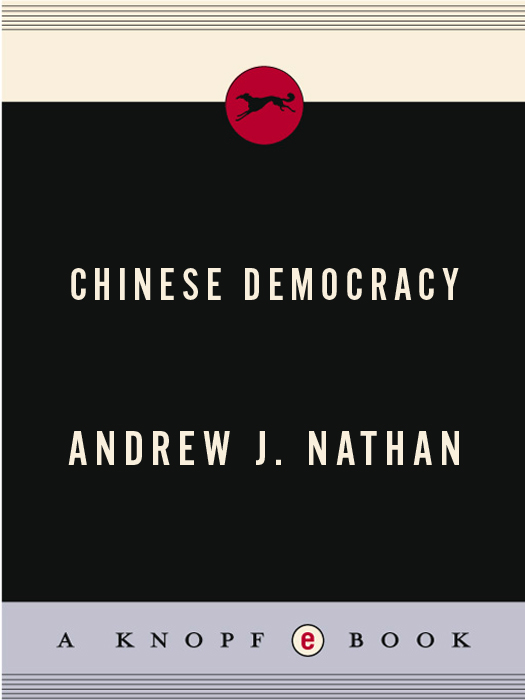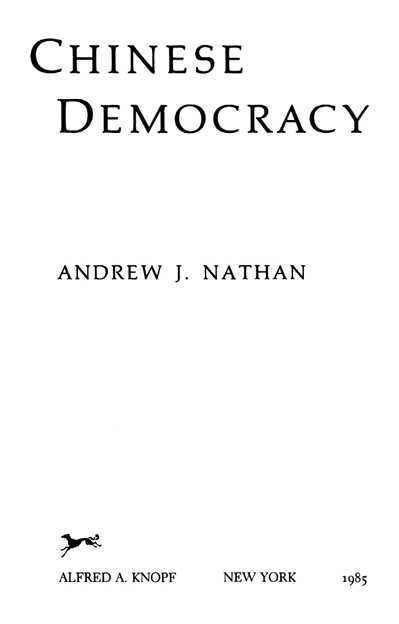Andrew J. Nathan - Chinese Democracy
Here you can read online Andrew J. Nathan - Chinese Democracy full text of the book (entire story) in english for free. Download pdf and epub, get meaning, cover and reviews about this ebook. year: 2012, publisher: Knopf Doubleday Publishing Group, genre: Politics. Description of the work, (preface) as well as reviews are available. Best literature library LitArk.com created for fans of good reading and offers a wide selection of genres:
Romance novel
Science fiction
Adventure
Detective
Science
History
Home and family
Prose
Art
Politics
Computer
Non-fiction
Religion
Business
Children
Humor
Choose a favorite category and find really read worthwhile books. Enjoy immersion in the world of imagination, feel the emotions of the characters or learn something new for yourself, make an fascinating discovery.

- Book:Chinese Democracy
- Author:
- Publisher:Knopf Doubleday Publishing Group
- Genre:
- Year:2012
- Rating:5 / 5
- Favourites:Add to favourites
- Your mark:
Chinese Democracy: summary, description and annotation
We offer to read an annotation, description, summary or preface (depends on what the author of the book "Chinese Democracy" wrote himself). If you haven't found the necessary information about the book — write in the comments, we will try to find it.
In Chinese Democracy, Andrew J. Nathan tackles these in issues in depth, drawing upon much fresh and unfamiliar material. He begins with a vivid history of the short-lived democracy movement of 1978-81, where groups of young people in a number of Chinese cities started issuing outspoken publications and putting up posters detailing their complaints and opinions. Apparently condoned at first by the post-Mao regime, the movement flourished; then it was crushed, its leaders tried and jailed. With quotes from many of the participants and their works, Nathan constructsfor the first timea poignant picture of the burst of liberal activity, at the same time showing how distinctly Chinese it was and how the roots of its failure lay as much in history as in current political necessity.
To demonstrate this, Nathan investigates the nature of the democratic tradition in China, tracing it back to the close of the imperial era at the end of the nineteenth century and the works of Liang Qichao, the countrys most brilliant journalist and most influential modern political thinker. We see how Liang deeply influenced Mao Zedong, and how conflicts between party dictatorship and popular participation, between bureaucratic authority and individual rights, between Maos harsh version of democracy and Deng Xiaopings more liberal one, remain to this day unresolved and potentially dangerous. For example, as Nathan shows, there was apparently a serious move toward liberalization projected on the highest government levels in the years after Maos death, yet the move failed. In a tour de force of scholarship, Nathan shows through an extended study of the many Chinese constitutions put force since the 1911 Revolution that individual rights have always been forced to give away to the needs and ambitions of the state. Democracy in China has traditionally been admired mainly for what it can help accomplish, not for any human rights it may embody.
Finally, making use of scores of interviews with migrs from the mainland, the author analyzes the extraordinary role played by the press in forming public attitudes in China, and then goes on to show what happened in 1980 when the authorities for the first time conducted direct elections to the county-level peoples congresses. It was a splendid shambles. Much of this story has never been told before.
Chinese Democracy is a highly original and convincing book on a subject of immediate concern, a rich combination of reportage and research by one of our best-informed China specialists. No one can read it without gaining an entirely new perspective on the nature of democracy as the Chinese practice itand, incidentally, as we practice it too.
Andrew J. Nathan: author's other books
Who wrote Chinese Democracy? Find out the surname, the name of the author of the book and a list of all author's works by series.


